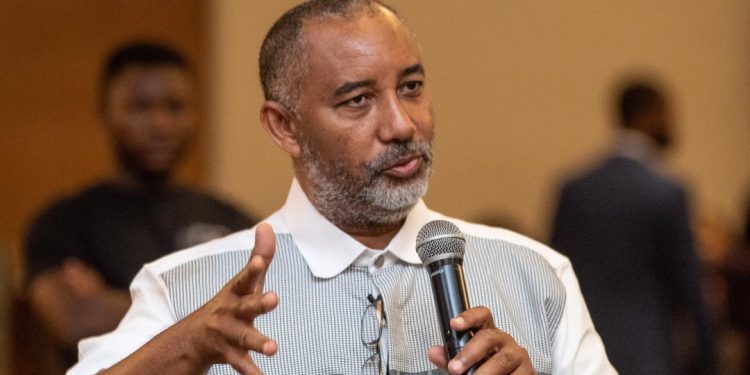Alex Mould Questions BoG’s 25% Policy Rate Amid Ample Market Liquidity and Falling Inflation
Former Executive Director of Standard Chartered Bank, Alex Mould, has raised serious concerns over the Bank of Ghana’s (BoG) decision to maintain its benchmark policy rate at 25%, despite notable improvements in key macroeconomic indicators, particularly inflation and market liquidity.
In a sharp critique of the Central Bank’s monetary stance, Mr Mould questioned the rationale behind the Monetary Policy Committee’s (MPC) decision to hold the rate steady, arguing that the current economic environment supports a more accommodative policy.
The Monetary Policy Rate (MPR) is expected to serve as a guiding instrument for market participants—shaping inflation expectations, credit conditions, and investment behaviour. However, Mr Mould contends that the prevailing 25% MPR is increasingly at odds with evolving market dynamics.
Supporting his assertion, he pointed to recent Treasury market data that reflects significant downward movement in short-term borrowing costs. The 91-day Treasury bill rate has dropped to 10.29%, while the interbank lending rate is now under 15%.
Moreover, the latest Treasury bill auction witnessed an 85% oversubscription—an outcome Mr Mould interprets as a clear sign of excess liquidity within the banking sector.
“Banks are sitting on excess cash, and some are even turning away fixed-term deposits because it’s costly money,” Mr Mould stated. “Yet we’re not seeing a corresponding drop in lending rates to businesses or consumers.”
Mr Mould further attributed the prevailing high lending rates to the formulation of the Ghana Reference Rate (GRR), which continues to reflect elevated borrowing costs despite market rate declines.
The GRR, used by banks as a base for determining lending rates, is weighted 40% by the MPR, 40% by the 91-day T-bill rate, and 20% by the interbank rate. Given the current 25% policy rate, the GRR remains elevated at approximately 23%, undermining efforts to ease credit conditions for businesses and households.
With inflation on a steady decline—recorded at 13.7% in June—Mr Mould has called on the BoG’s MPC to reduce the MPR to below 20% at its next review meeting.
“Lowering interest rates reduces the cost of production, brings down prices, and helps control inflation,” he asserted. “A stable cedi and falling inflation would allow for positive real interest rates without stifling economic growth.”
He commended the ongoing economic reforms under the current administration, noting that the RESET agenda promised by former President John Dramani Mahama is gaining momentum. Mr Mould also praised Finance Minister Dr Cassiel Ato Forson and BoG Governor Dr Johnson Asiama for their stewardship of the economy.
“Ghana doesn’t lack liquidity,” Mr Mould emphasized. “What we lack is policy alignment. It’s time to harmonize the MPR with market realities. Our businesses—and the future of our economy—depend on it.”







